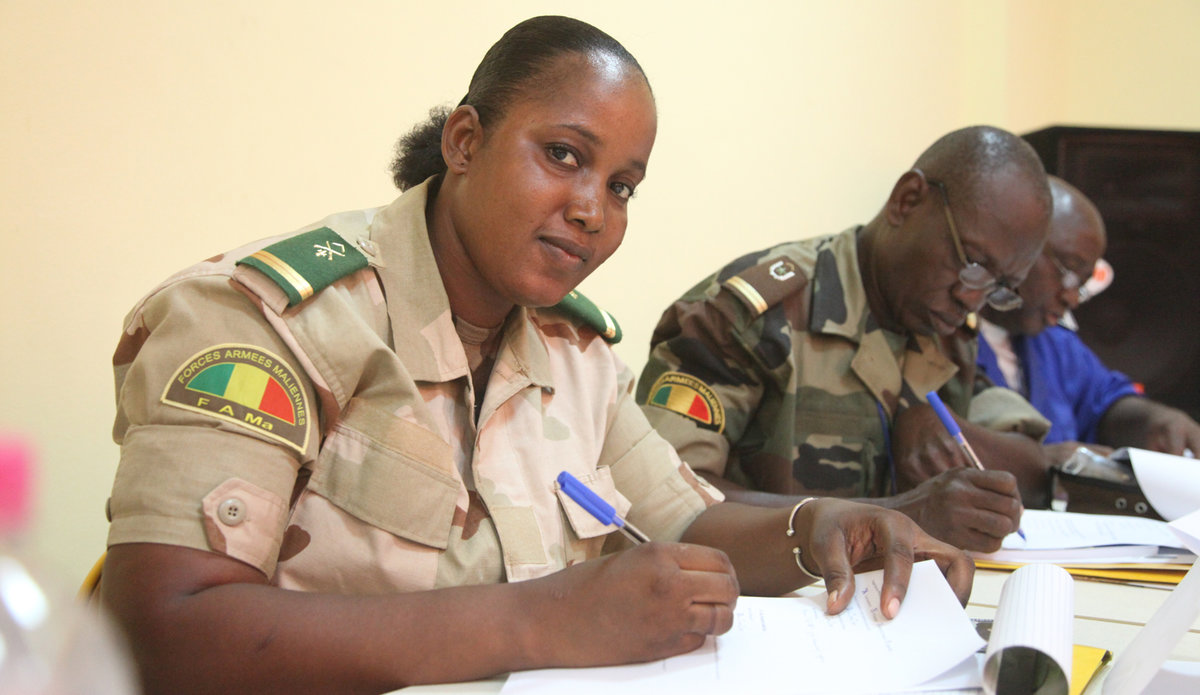UNOWAS supports SRR processes in the sub-region
Since its establishement, the United Nations Office for West Africa and the Sahel has been engaged to supporting governements and partners to implement ambitions SSR programs.
To consolidate peace and security, many countries in West Africa have initiated crucial reforms of their security sectors with the support of several partners. As a major regional actor, UNOWAS has been engaged since its establishment in 2002* in supporting national authorities and regional organizations to articulate and implement new reforms of the security sector.
UNOWAS has been engaged since its establishment in 2002 in supporting national authorities and regional organizations to articulate and implement new reforms of the security sector
At the regional level, UNOWAS has supported ECOWAS in developing its policy framework on security sector reform and governance (SSRG) which was adopted by Heads of States in June 2016 in Dakar, and it continues to support the rolling-out of the SSRG with the objective of promoting a coordinated approach to security sector reform in the West Africa region.
At national levels, the support of UNOWAS has been vital in several countries like in Guinea, Burkina Faso, or recently in The Gambia.
Since 2010, UNOWAS supported the full assessment in Guinea that led to the identification of weaknesses, gaps, threats and people’s needs for protection following the multiple political crisis involving the military. At a request of the authorities of Guinea, UNOWAS contributed to the design and the implementation of an SSR programme which helped restore democratic civilian oversight of the defence and security forces. In addition to restoring the discipline and the return of the soldiers in the barracks, the support of UNOWAS was critical to the retirement of some 3500 military personnel who otherwise would have not been retired.
The Guinean Police personnel is another significant example. For the past 16 years, Police personnel have been recruited without having undertaken formal training. In March of last year, the first 304 police staff were graduated from the newly established Police school as part of the SSR programme.
In Burkina Faso, after the popular uprising of 2014 that led to the first democratic elections, the new President Roch Marc Christian Kaboré requested the United Nations to support and guide the authorities to initiate the reform of the security sector. As part of the framework of the UN Sustaining Peace initiative launched in 2016, UNOWAS deployed a senior adviser on SSR to the President to help finalize a road map which will look, among others, at providing concrete responses to the expectations of people for justice, and at improving the security.
Recently, in The Gambia, with the change of regime, there is a high level of distrust in the capacity of the national armed forces, the police and other security actors to ensure the security of the national institutions and of the people. Through the good offices of the SRSG Ibn Chambas, UNOWAS is actively involved in guiding the new authorities to conduct an ambitious reform of the security sector that will aim at restoring confidence and consolidating peace in The Gambia.
As a major actor in the region, UNOWAS, in coordination with other regional entities such as UNODC, DPKO and Interpol, plays an instrumental role through the West Africa Coast Initiative (WACI) programme, advocating for enhanced law enforcement agencies to counter transnational organized crime, drug and other illicit trafficking.
In the Gulf of Guinea, UNOWAS has been engaged in encouraging States members of ECOWAS, the Economic Community of Central African States (ECCAS) and the Gulf of Guinea Commission (GGC) to coordinate their efforts to develop and implement the Yaoundé maritime security architecture.
 UN
UN


